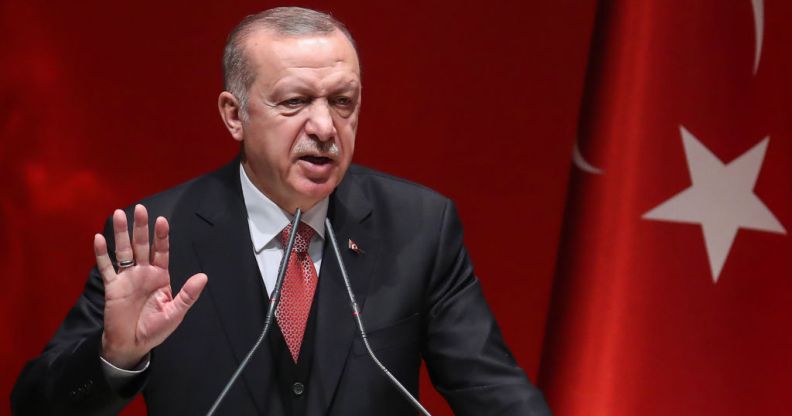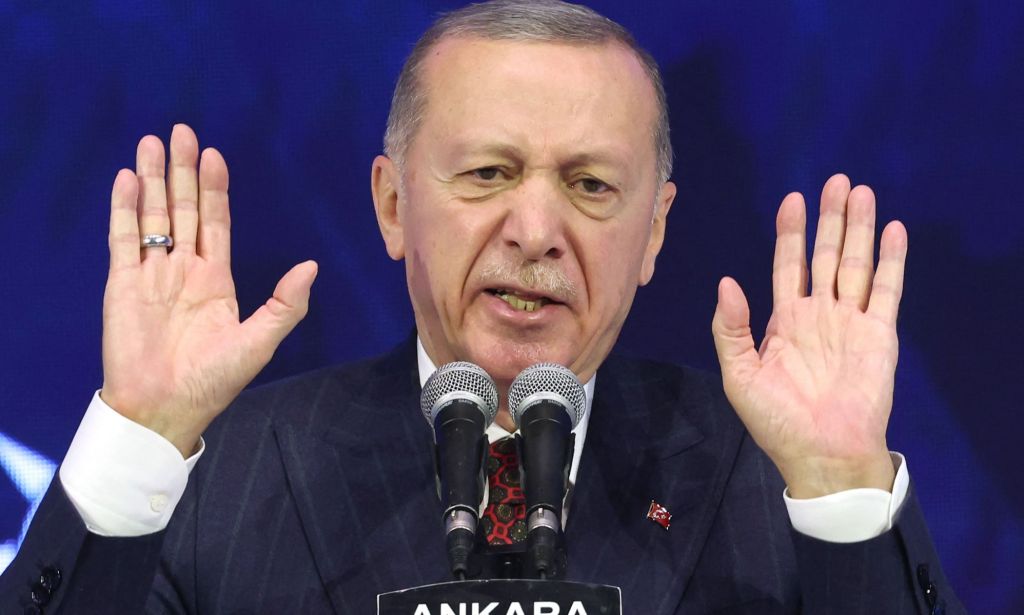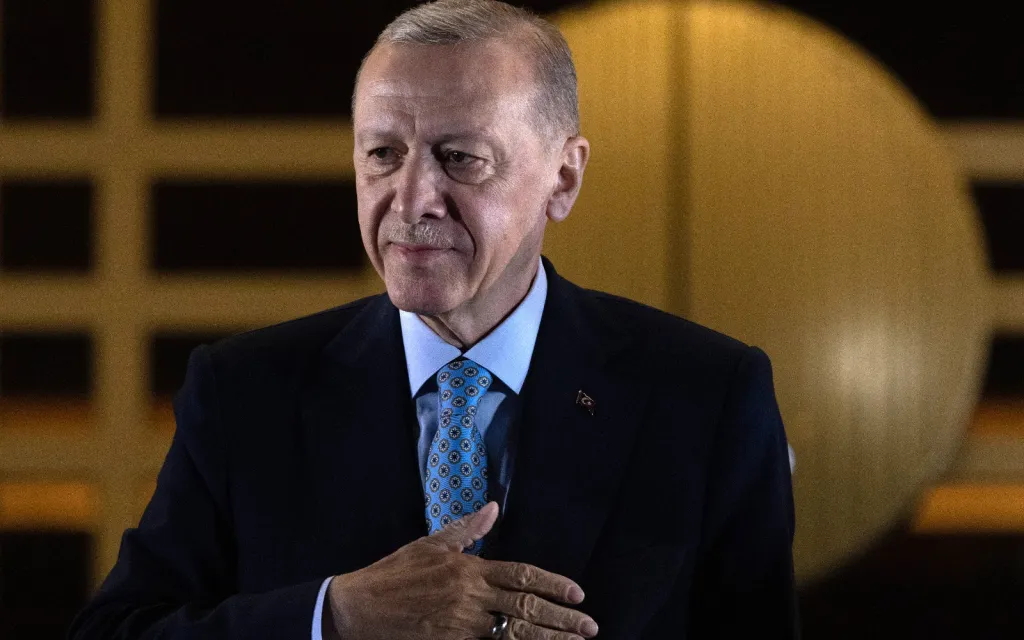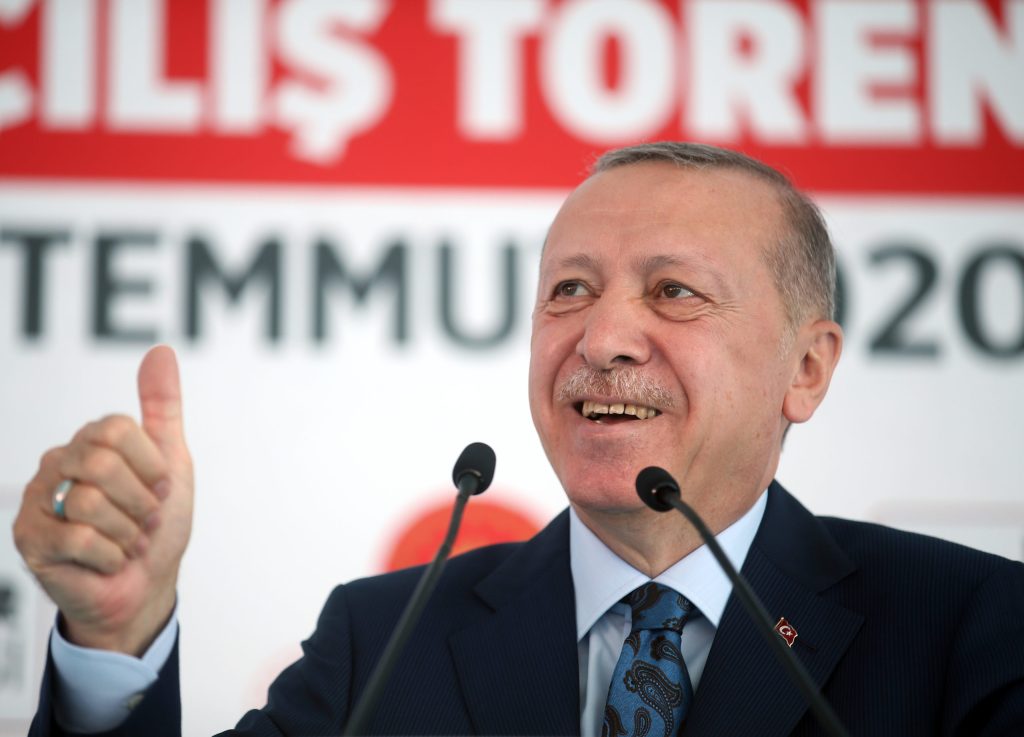Turkey’s Erdoğan claims LGBTQ+ people threaten the family

Turkish president Erdoğan launched a new attack on LGBTQ+ people. (ADEM ALTAN/AFP via Getty Images)
Turkey’s President Recep Tayyip Erdoğan has targeted the LGBTQ+ community yet again, claiming that they are somehow a threat to the family.
In a speech at a family council meeting held on Thursday (26 October), Erdoğan inexplicably listed the LGBTQ+ community as one of the “biggest threats against the family”, the Gazete Duvar news reports.
It was part of Erdoğan’s overall argument that the family institution in Turkey is weakening and that the country needs “a much larger population.”

Though Erdoğan didn’t directly explain why Turkey’s population of 85 million wouldn’t suffice, he did point to what he believes is hindering the country’s growth.
One of the main culprits, he suggested, was LGBTQ+ people and ideologies.
In particular, Erdoğan seemed to take issue with gender-neutral policies or, as he described them, “global ungendering efforts”, which he complained were “deviant trends” directly “targeting the institution of family”.
“The family is sacred in our belief and culture. Religion and morals are learned in families,” he continued, warning against “all attempts to weaken the family institution.”
“The People’s Alliance does not accept LGBT. Let the [opposition] Nation Alliance have it, they can use it however they like. We cannot allow anyone to defile the sacred family.”
Erdoğan did point to other suspected threats to Turkey’s population, like growing divorce rates and shrinking numbers of children per family, but the LGBTQ+ community has been a favourite target of his for some time now.

Although homosexuality is legal in Turkey, and has been since the 1800s, LGBTQ+ people often face harassment and abuse – both from fellow citizens and from the government.
This was only boosted by the re-election of President Erdoğan, who claimed in his election victory speech last year that he would make it his mission to take down what he called “LGBT forces.”
“In our culture, family is sacred,” Erdoğan said at the time. “No one can interfere. We will strangle anyone who dares to touch it.”
Just earlier this month, Erdoğan said that neither he nor his party “recognise LGBT” and called for a fight against so-called “perverse” trends in Turkey.
Erdoğan’s comments have fostered an atmosphere of fear and unease for LGBTQ+ people who live in Turkey.

There have been reports of people being arrested for just “looking gay” and that gay foster parents had a baby taken away from them after intervention by the government.
This year, IGLA-Europe ranked Turkey among the least LGBTQ+ friendly of all 49 European nations listed on its Rainbow Map and Index.
The group gave Turkey a measly 4 per cent in its ranking on the country’s legal and policy practices for LGBTQ+ people.
Earlier this summer, hundreds of people were detained for standing up for their rights at a banned Pride march in Istanbul.
The bans directly contradicted Turkey’s and the European Court of Human Rights’ courts’ guarantee to the right to assembly.
Despite the ban, hundreds took to the streets of Istanbul and Izmir, shutting down public transport and blocking access to certain roads.
Speaking to Euronews at the event, Istanbul Pride committee member Can Kortun described the police as fearful of those “different” to them.
“They are aware of our strength and numbers. They are aware of the change we can accomplish,” she said. “But despite that, they refuse to communicate, and they are so afraid of us that they don’t let us come out.”
How did this story make you feel?

